Real-life stories
Meet Gábor
Gábor and receiving medicines while on invasive ventilation
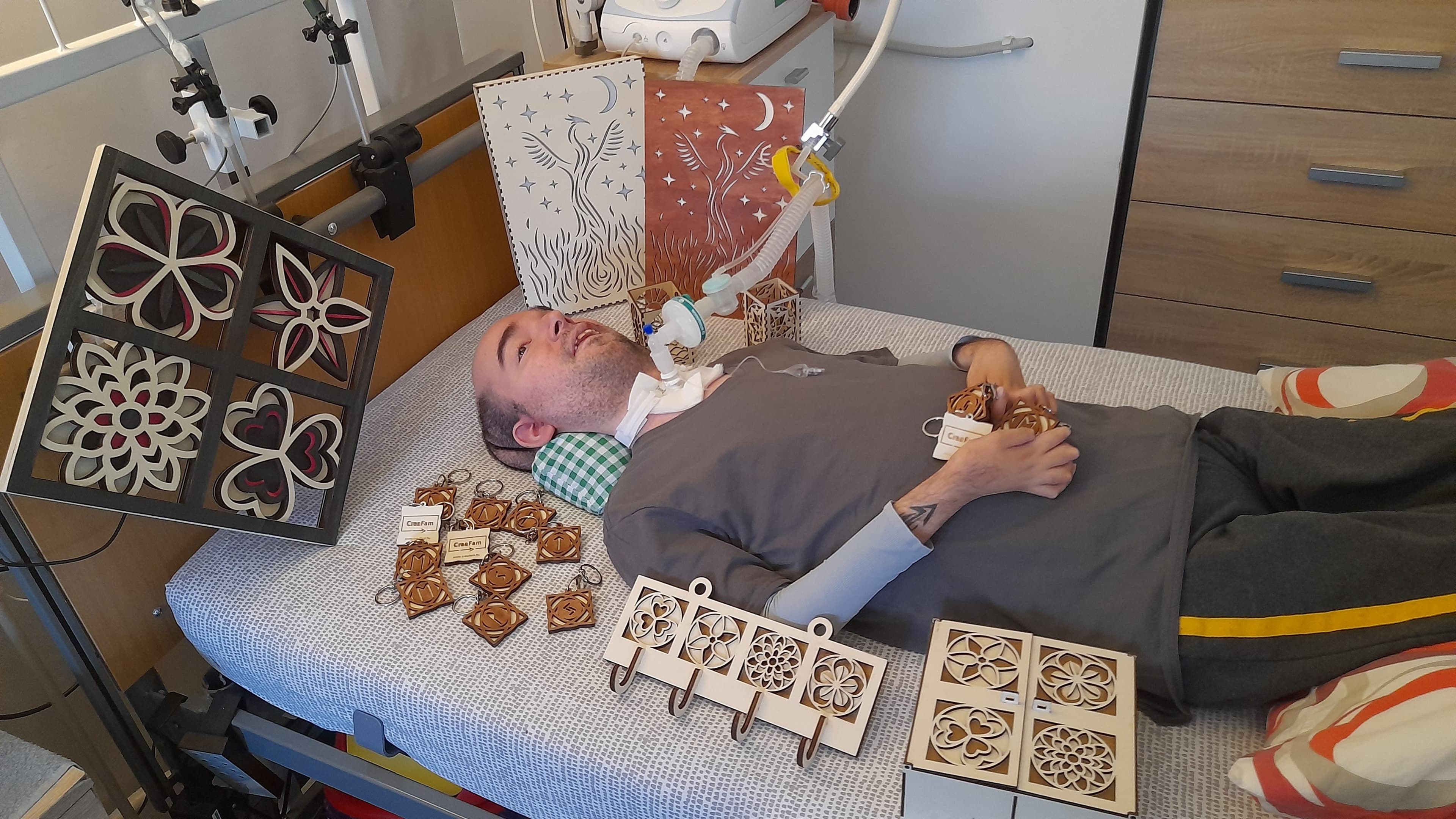
Gábor
Gábor has been living with SMA for 35 years. With a passion for learning, he has tried himself at composing music, developing videogames, editing video and photos, and vector graphics, all self-taught from his PC. Playing videogames is a favoured pastime, providing him with a sense of freedom of movement that he otherwise cannot experience in his daily life. Gábor has been a non-sitter for many years and can no longer use his hands or move his fingers without assistance. Still, he is very active and capable in the virtual world. His family responsibilities include handling all official matters, online communications, and internet shopping. In 2024, he and his parents opened a small business creating and selling laser cutter decorative and functional items online, based on Gábor’s graphic designs. Gábor’s care also occupies a great deal of his and his family’s time.
Since birth, Gábor struggled with swallowing difficulties. At three months, his parents realised he was not developing neck control. After several examinations, he was diagnosed with SMA at eight months old, following an electromyography. Doctors told the family that there was no cure or therapy for the disease and that Gábor would only live until around the age of three. He never learned to walk, crawl, or turn himself over in bed and could only sit supported with lots of cushions and padding. He always needed assistance with the basic needs and activities, and every significant growth spurt brought additional deterioration. As time passed, Gábor’s breathing worsened. Throughout childhood, even mild colds caused serious issues and by the age of 15, he could barely breathe while sitting up. Shortly after, in late 2004, a severe viral infection led to a tracheostomy, and he has been on ventilation since. Having a tracheostomy took readjustments, as daily routines and Gábor’s care needed to be adapted.
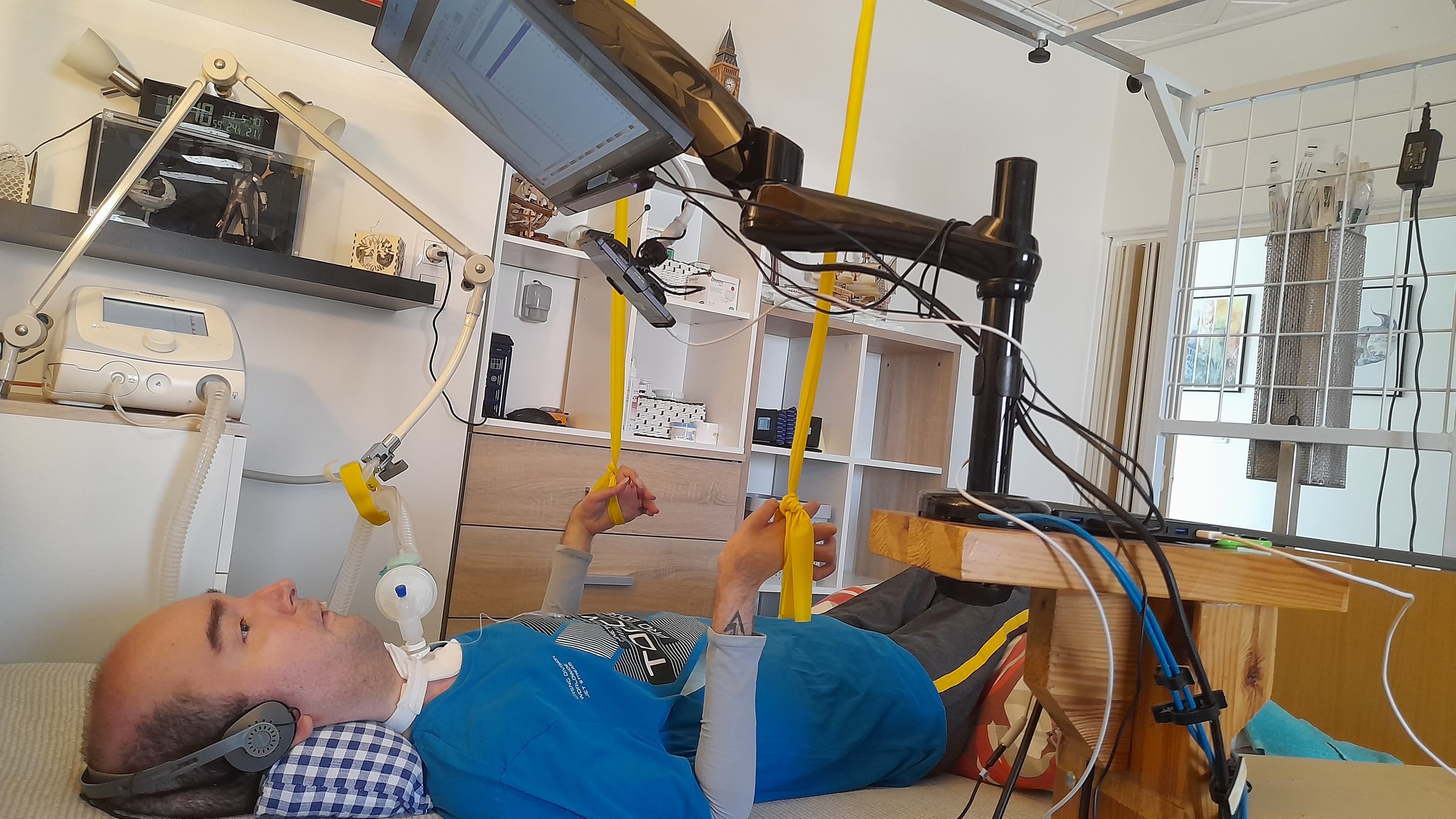
“We had to relearn everything, but the tracheostomy saved my life. I feel much safer knowing that the ventilator always provides support for my breathing. In the last twenty years, I have only been hospitalized once due to respiratory issues, as we have been able to manage all viruses and colds at home with the help of the ventilator. All of this makes a huge difference in the everyday, as it allows me to live a manageable — though not always easy — life.”

For many years, Gábor tracked medical developments closely, hoping that his childhood dream for a therapy for SMA would one day become reality. When the SMA clinical trials were nearing completion, he was both excited and anxious. In early 2016, Gábor lost his sister Gerda, who also lived with severe SMA and passed away due to an aggressive virus. By the end of 2016, the first medicine for SMA was approved in the United States, a bittersweet timing for Gábor, who cannot help but think what could have been.
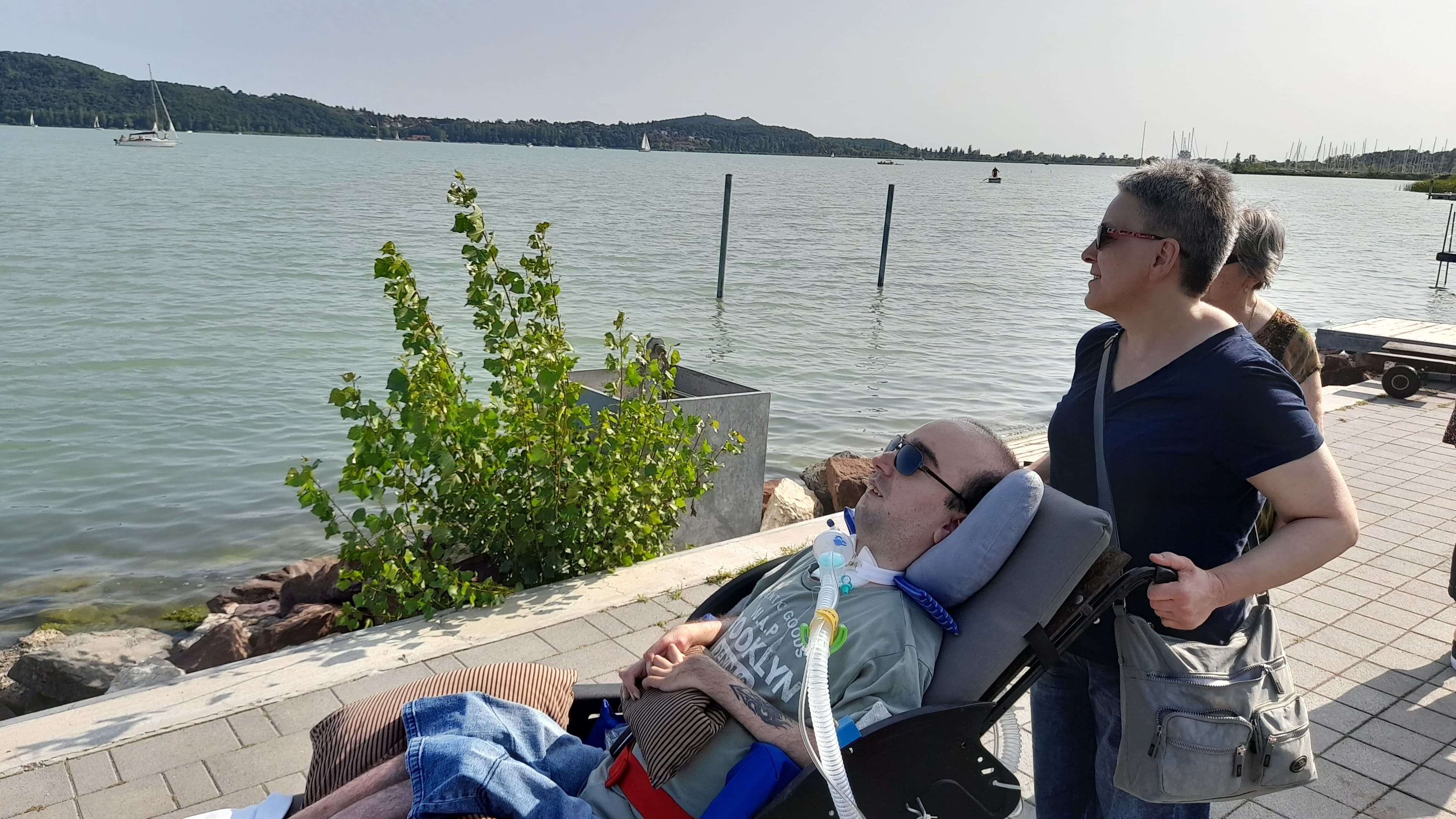
As medicines became approved in Europe, Gábor was aware that his age and tracheostomy could constitute potential barriers to his access to SMA medicines. Despite being on invasive ventilation, however, he was able to start treatment in May 2020 through an early-access program. Indeed, for one of the medicines available in Hungary, being on ventilation through tracheostomy is not a criterion for a priori exclusion from treatment. This is not at all a common case across Europe. In fact, in many European countries, having a tracheostomy is a criterion for not being authorised to start medicines, or receiving a tracheotomy during treatment can be grounds for access to medicines to be stopped. While guidelines vary in different countries, a great proportion of people using invasive ventilation in Europe remain excluded from access to SMA medicines, despite no clear scientific evidence of any disadvantages. In Gábor’s case, however, the benefits of treatment were clear. Just within a few weeks of starting treatment, he started noticing improvements:
My condition has become much more stable. My swallowing and facial muscles have improved, as did my facial expressions. My overall physique is now more robust. My chest is fuller and more muscular, and my lung capacity has increased."

Gábor had had a gastrostomy for 16 years, which in recent years had caused him pain due to severe inflammation around the feeding tube. After about a year on the medicines, he and his doctor decided his condition had improved enough to allow him to safely eat by mouth and removed the feeding tube. Although he cannot eat solids, Gábor can now steadily and consistently manage pureed and blended foods, pain-free.
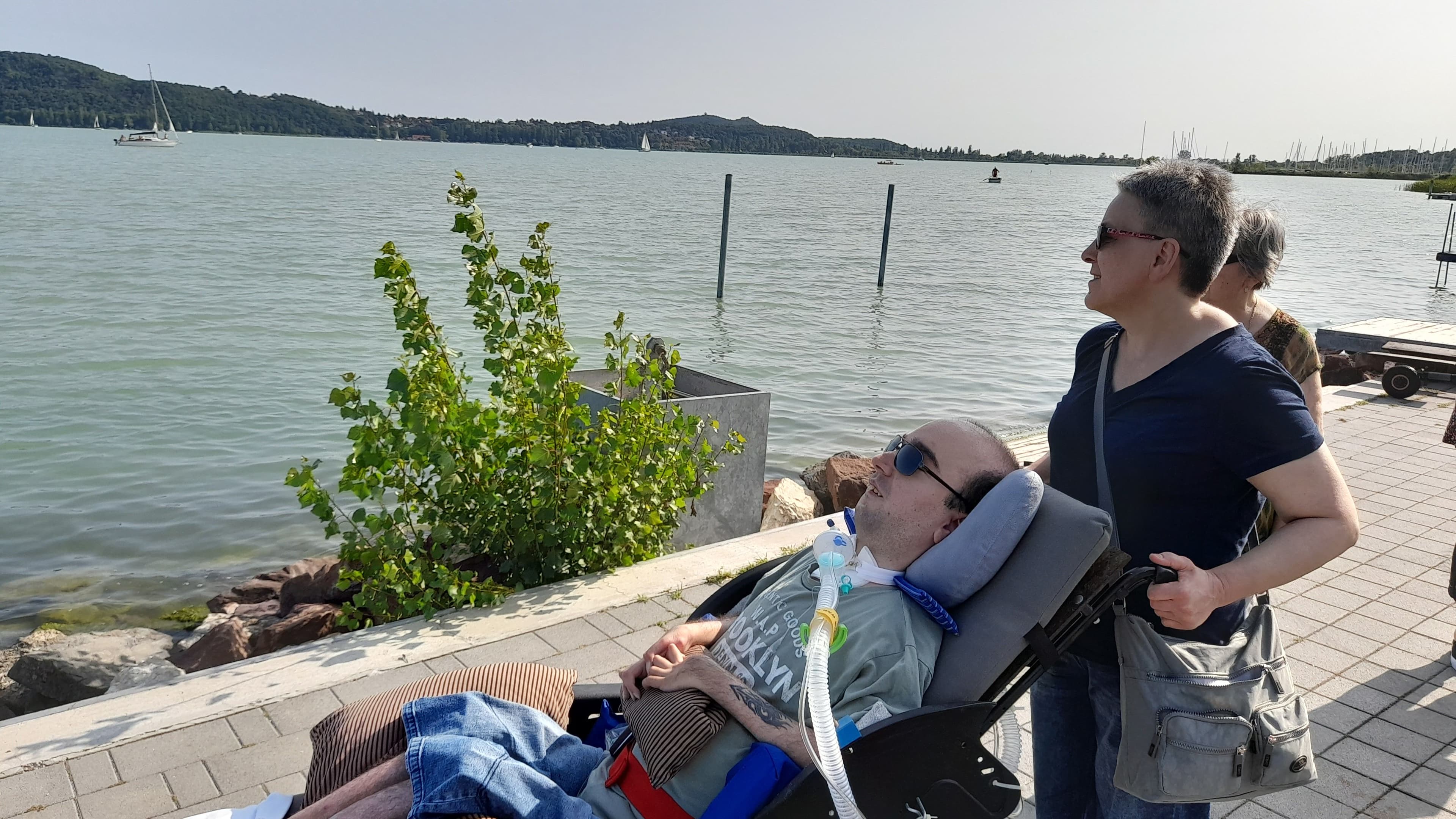
“These changes may not seem like major lifestyle improvements, but these small gains have allowed me to stay alive and continue exploring the possibilities available to me. Above all, they have given me a chance to see tomorrow. This gives me hope and has bought me time for future treatments that might bring even greater changes to my life.”
With this positive outlook, Gábor wishes for researchers to continue to approach problem-solving creatively. He particularly looks forward to effective solutions for regenerating damaged nerve cells and muscles. He would also like to see policymakers support the facilitation of bench-to-bedside processes so that everyone living with SMA can have fast and steady access to medicines regardless of their background and circumstances.
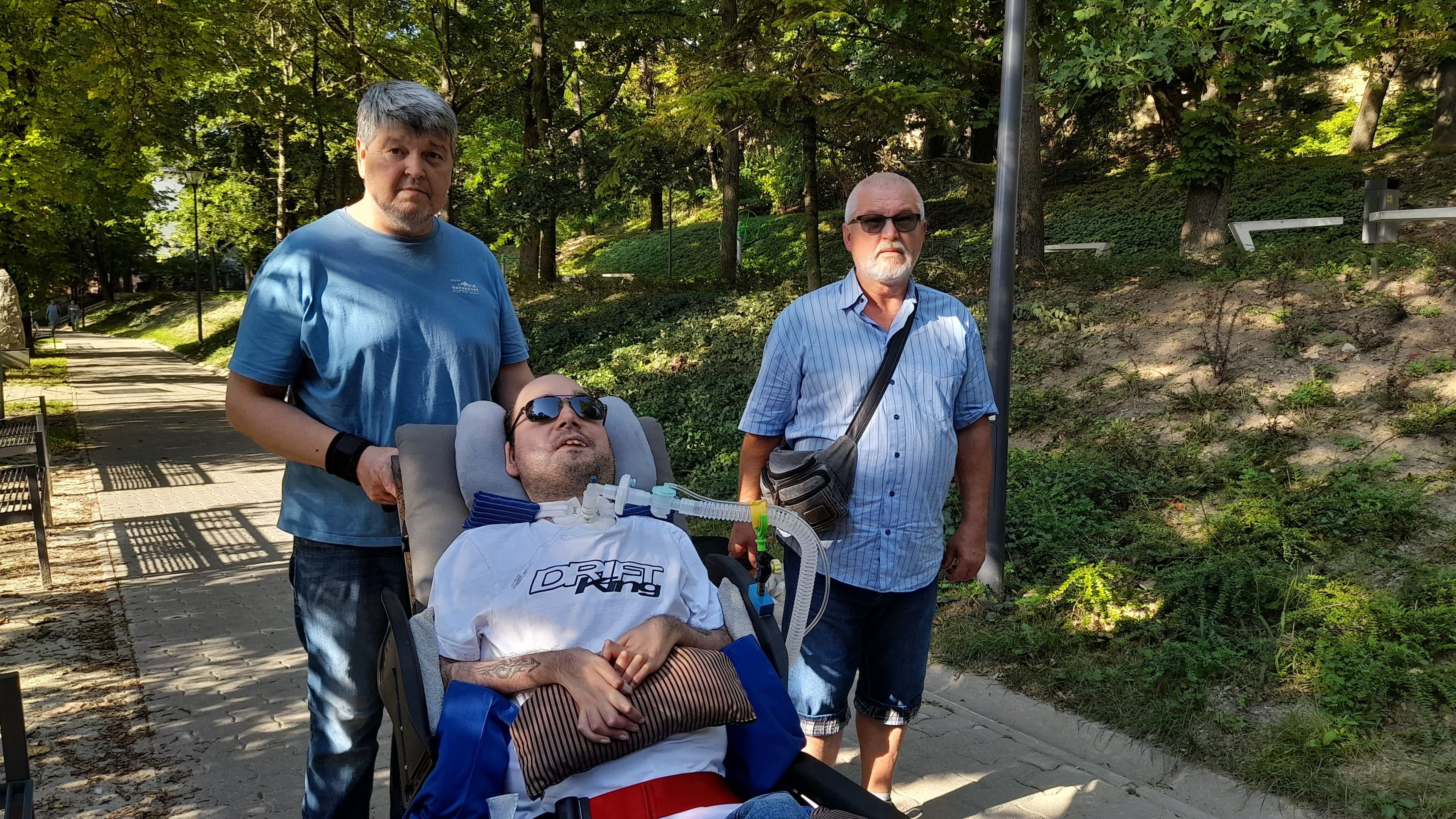
Everyone deserves the chance to live with dignity and hope. Treatment through medicines is not only crucial for the person living with SMA but also has a positive impact on their environment, family members, and loved ones, improving their overall quality of life.
Finally, Gábor wishes for all his fellow people living with SMA to have access to the SMA treatments that are most suitable to them and best meet their needs.
Interview conducted in writing in January 2025.
Ventilation-related restrictions to access to SMA medicines force people to choose between optimal respiratory management and benefitting from disease-modifying treatments.
Stay updated!
Newsletter sign up
Keep up-to-date with the OdySMA project. Sign up to receive our digital newsletter
OdySMA is a participatory advocacy tool. Therefore SMA Europe cannot warrant the completeness, reliability, or absolute accuracy of the data shared on OdySMA, as there may be changes that our members and supporters do not immediately inform us of. Should you identify inaccuracies or omissions, please contact us and let us know. We count on you!